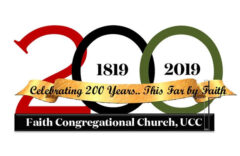
First Advent, Now Epiphany ? What?
First we celebrated Advent, the 40 day period leading up to Christmas, complete with frenzied shopping and partying. (BTW, it seems that the commercial “Christmas” season starts earlier every year. I saw Christmas in stores in early October this year!) Now we are celebrating the 12 days of Christmas, ending with Epiphany on January 6. 12 days of Christmas? I thought that was just a song? Well, it is, but it stands for a very real, and now very expensive, tradition.
The ’12 Days of Christmas’ Costs a Little More This Year
This year it’ll cost a little more if you want to put everything from the “12 Days of Christmas” song under your tree. The complete set of prices for buying everything in the song from a physical store is as follows:
- Partridge, $20; last year: $25
- Pear tree, $190; last year: same
- Two turtle doves, $375; last year: $290
- Three French hens, $182; last year: same
- Four calling birds (canaries), $600; last year: same
- Five gold rings, $750; last year: same
- Six geese-a-laying, $360; last year: same
- Seven swans a-swimming, $13,125; last year: same
- Eight maids a-milking, $58; last year: same
- Nine ladies dancing (per performance), $7,553; last year: same
- 10 lords a-leaping (per performance), $5,509; last year: same
- 11 pipers piping (per performance), $2,708; last year: $2,635
- 12 drummers drumming (per performance), $2,934; last year: $2,855
According to Edwin and Jennifer Woodruff Tait, writing for Christianity Today, the “real” 12 days of Christmas are important because they give us a way of reflecting on what the the birth of Jesus means in our lives. Christmas commemorates the most momentous event in human history—the entry of God into the world God made, in the form of a baby. December 26 is the feast of St. Stephen—a traditional day for giving leftovers to the poor. St. John the Evangelist, commemorated on December 27, is traditionally the only one of the twelve disciples who did not die a martyr. On December 28, we celebrate the feast of the Holy Innocents, the children murdered by Herod.
Finally, on Epiphany (January 6), the celebration of Christmas comes to an end. “Twelfth Night” (as all lovers of Shakespeare know) is the ultimate celebration of Christmas madness (Shakespeare’s play features one of his many “wise fools” who understand the real meaning of life better than those who think they are sane). Epiphany commemorates the beginning of the proclamation of the gospel—Christ’s manifestation to the nations, as shown in three different events: the visit of the Magi, the baptism of Jesus, and the turning of water into wine. In the Western tradition, the Magi predominate. But in the Eastern churches, Jesus’ baptism tends to be the primary theme. Read the complete article here.
26 total views , 1 views today
